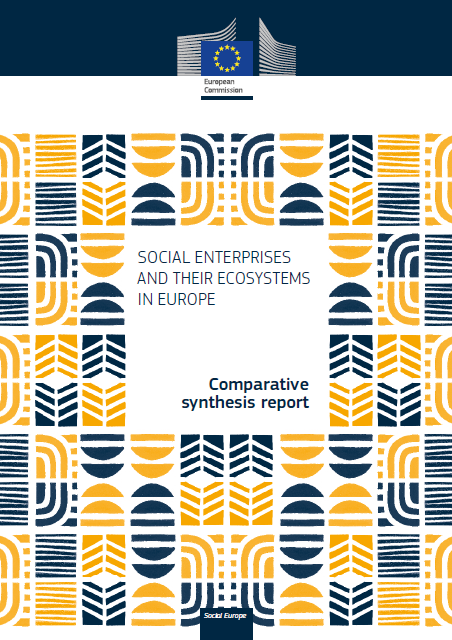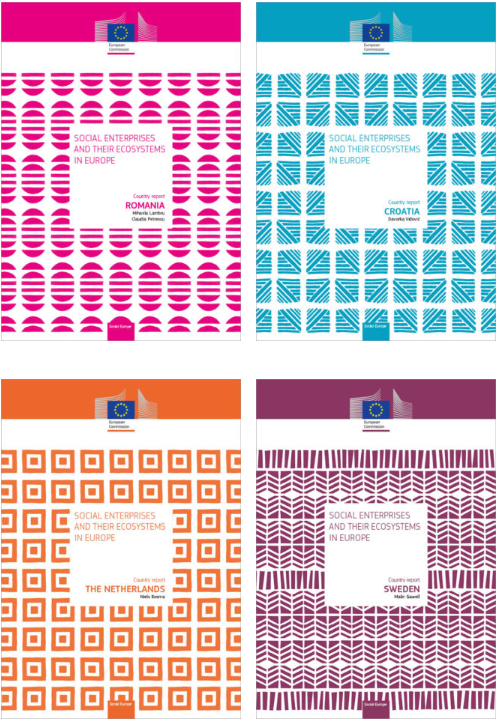All over Europe, organizations defined as social enterprises have become an increasingly important entrepreneurial dynamic over the past few decades. However, the understanding of their current size, scope and development dynamics lags behind their proliferation and the rising interest they generate among policymakers, researchers and practitioners. Aware of this gap, the European Commission launched two mapping studies as follow-ups to its 2011 Communication on the Social Business Initiative (SBI). The latest update “Social enterprises and their ecosystems in Europe” has been carried out by Euricse and the EMES International Research Network in 2018-2020. The deliverables of the present study are 28 updated country reports for EU Member States, 7 baseline country fiches for neighbouring countries participating in the EaSI Programme (Albania, Iceland, Montenegro, North Macedonia, Norway, Serbia and Turkey), and a comparative synthesis report.
The updated mapping study covers (i) the historical background and conditions of the emergence of social enterprises; (ii) the evolution of the concept and the existing national policy and legal framework for social enterprise; (iii) the scale and characteristics of social enterprise activity; (iv) networks and mutual support mechanisms; (v) research, education and skills development; and (vi) the resources available to social enterprises. The study also provides insights on the factors constraining the development of social enterprise, a reflection on the debate currently at play in national contexts, and an overview of possible developmental trends. A stakeholders’ engagement strategy aimed at capturing insights and analysis stemming from various agents within the ecosystem was carried out as well as an in-depth review of academic and grey literature and national policy documents regarding social enterprise.

Comparative Synthesis Report
Drawing on the findings from the 35 national reports, this comparative synthesis report provides an overview of the social enterprise landscape in Europe based on information available as of January 2020. This comparative analysis goes beyond the observation of social enterprise in each country to identify traditions, trends and challenges across Europe.
Here the full report.

Country reports
EU Member States
Austria, Belgium*, Bulgaria, Croatia, Cyprus, Czech Republic, Denmark, Estonia, France*, Finland, Germany, Greece, Hungary, Ireland*, Italy, Latvia, Lithuania, Luxembourg, Malta, Poland*, Portugal, Romania, Slovakia*, Slovenia, Spain*, Sweden, The Netherlands, United Kingdom.
Non-EU countries participating in the EaSI program
Albania, Iceland, Montenegro, North Macedonia, Norway, Serbia, Turkey.